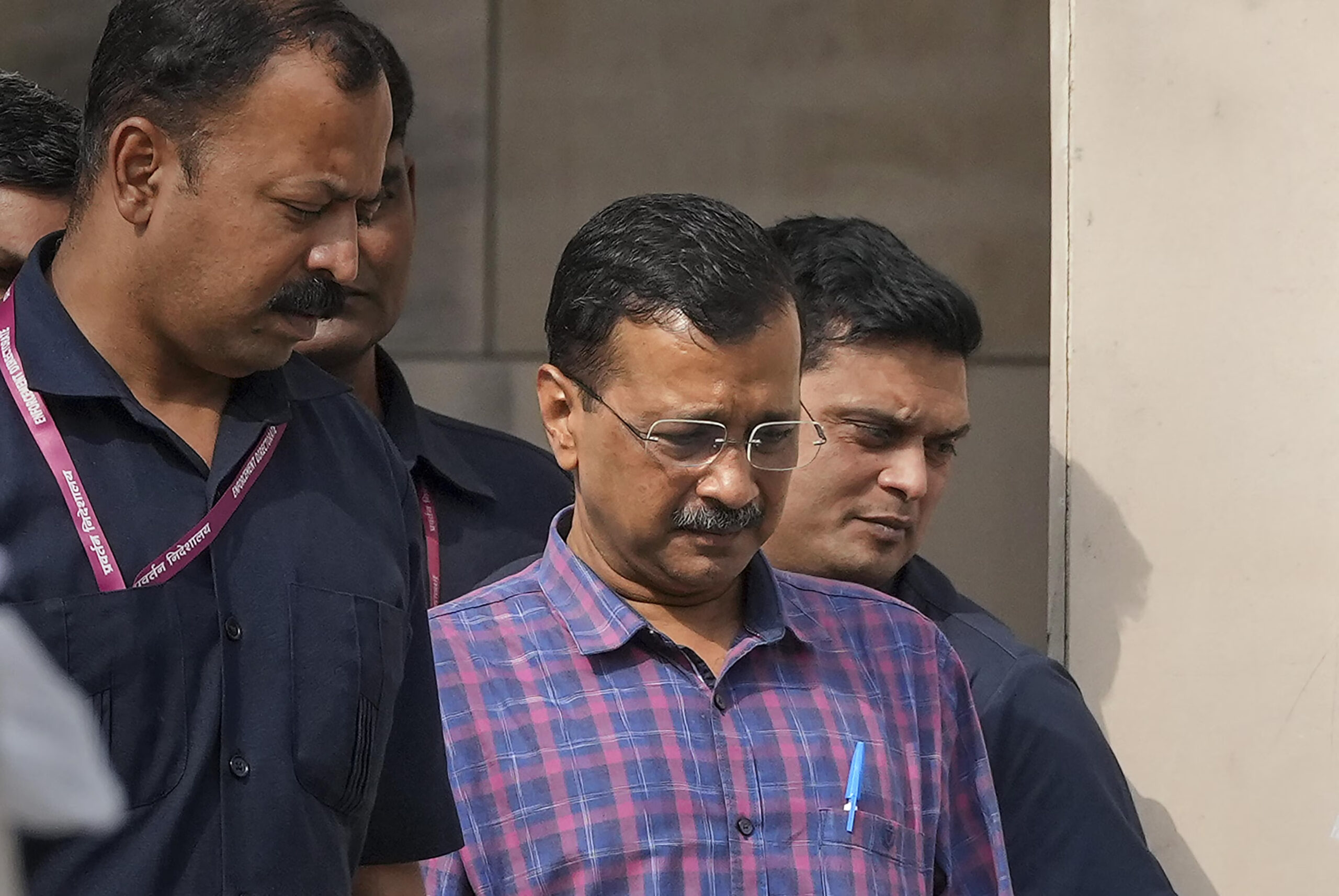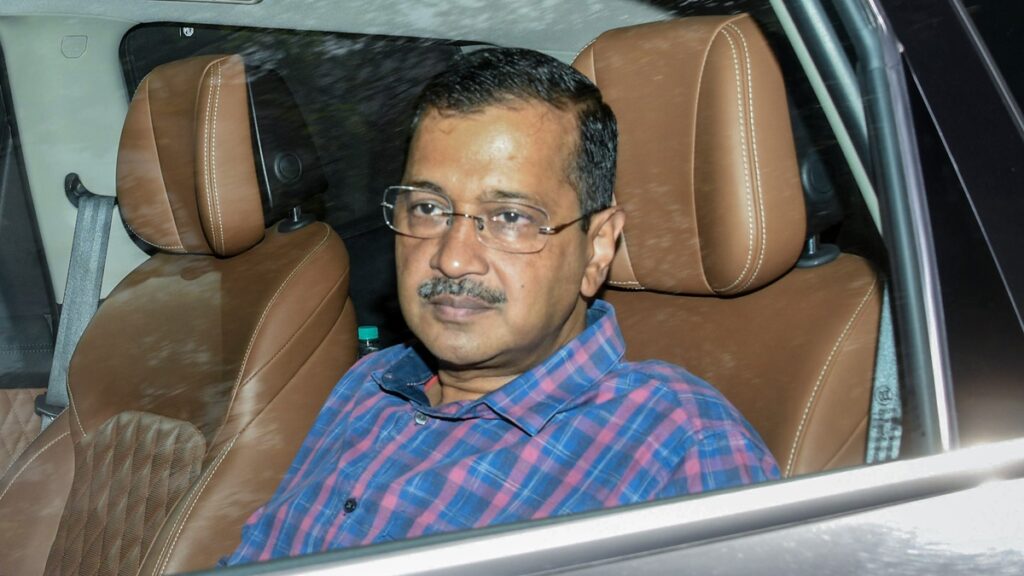Delhi Chief Minister Arvind Kejriwal was remanded to the custody of the Enforcement Directorate for seven days – i.e., till March 28 – late Friday night. A city court heard arguments by Mr Kejriwal challenging his arrest late last nigh iin connection with the alleged liquor policy scam. The agency had sought custody of the Aam Aadmi Party boss for 10 days.

Source: Business Standard
In the hearing, the probe agency called Mr Kejriwal the “kingpin” and “key conspirator” in the alleged scam. It claimed Arvind Kejriwal was the middleman between the ‘south group’ and other accused, including ex-Deputy Chief Minister Manish Sisodia (arrested last year) and AAP officer Vijay Nair.
Total proceeds of the alleged scam, the agency said, exceeded ₹ 600 crore; this includes ₹ 100 crore allegedly paid by the ‘south group’ the agency has claimed includes Bharat Rashtra Samithi leader K Kavitha, who was arrested last week.
Mr Kejriwal – the first sitting Chief Minister to be arrested – has denied all charges.
His party has repeatedly claimed the ED has yet to recover any allegedly illegally acquired cash. The Chief Minister – who spent the night at the agency’s office – will be represented by senior advocate Abhishek Manu Singhvi.
In his first reaction since the arrest, Mr Kejriwal told reporters “my life is dedicated to the nation“. Shortly afterwards his wife, Sunita Kejriwal posted an appeal on X (formerly Twitter). “Your Chief Minister always stood with you.. whether inside or outside (jail), his life is dedicated to the country,’ she said.
“Kingpin”: What ED Said About Kejriwal
“He was directly involved in implementation of the policy, and giving favour to the south group. He demanded kickbacks in exchange for favours… this is corroborated by statements,” Additional Solicitor-General SV Raju, argued for the Enforcement Directorate, “He is involved in use of proceeds of crime.”
The ED claimed ₹ 45 crore of the kickbacks were used to fund the AAP’s Goa and Punjab elections in 2022. The vote share of 6.8 per cent in the former confirmed AAP as a national party, and its victory over the Congress in the latter allowed it to establish a first state government outside of Delhi.

